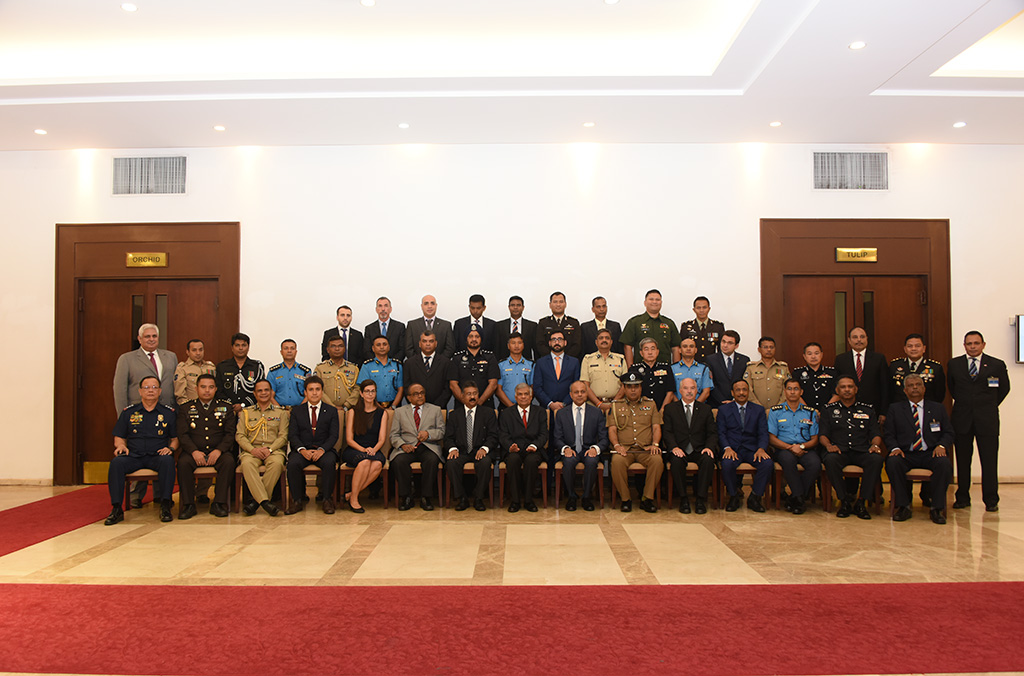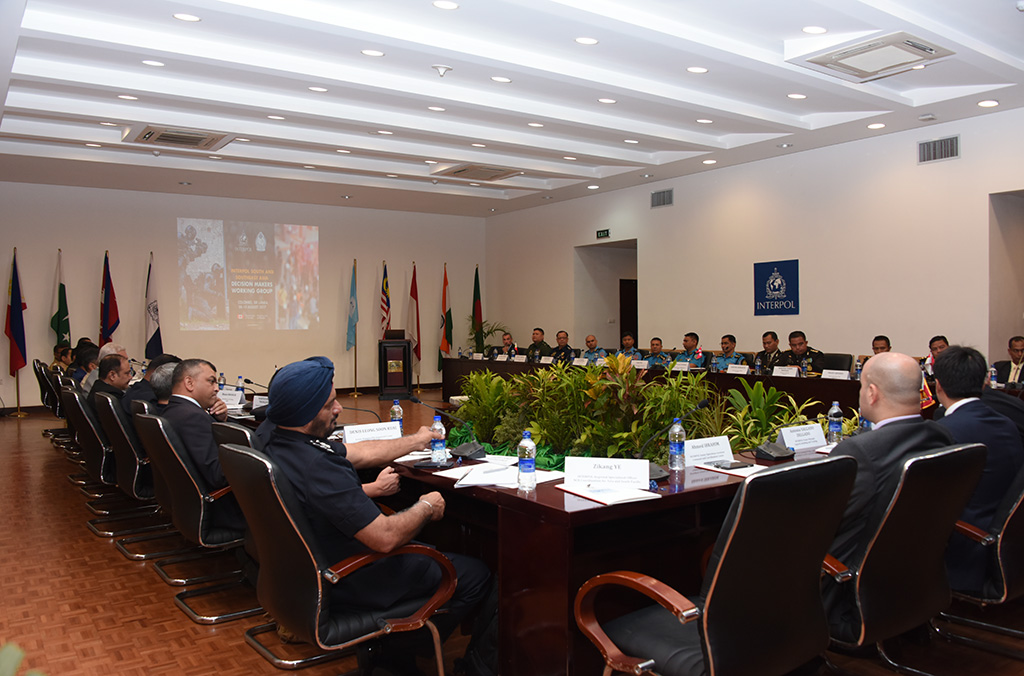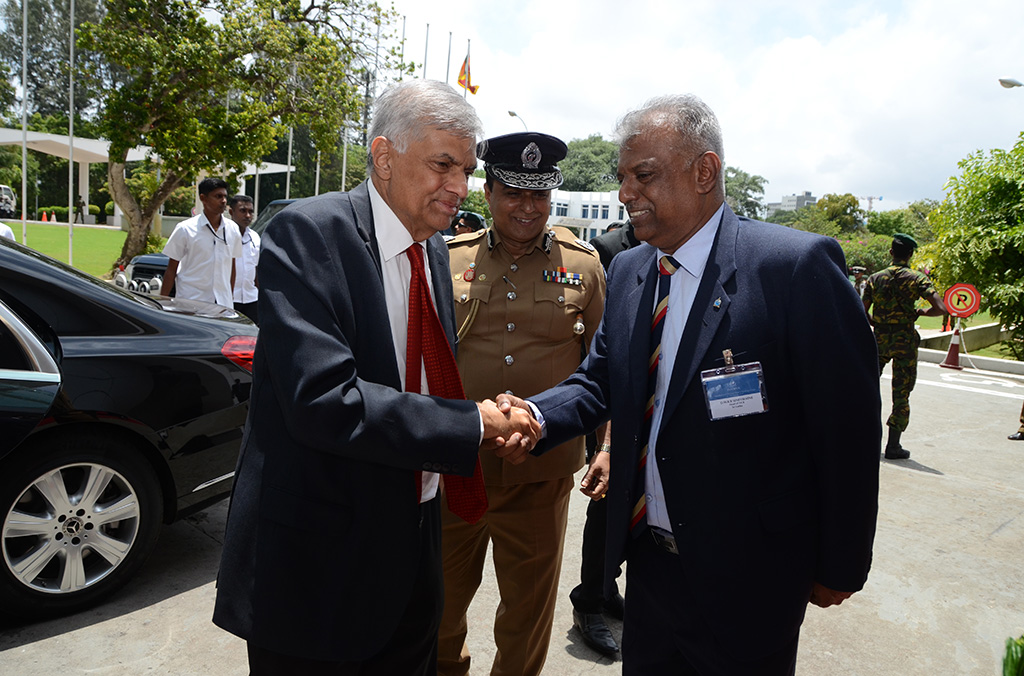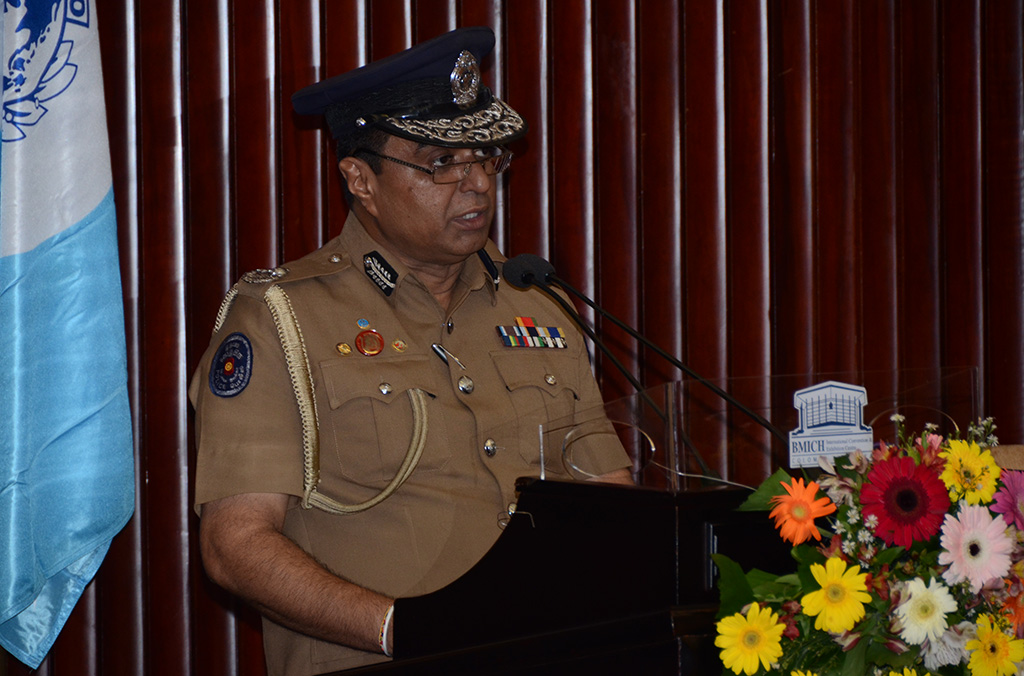COLOMBO, Sri Lanka – INTERPOL has launched a two-year project to support counter-terrorism activities across South and Southeast Asia.
INTERPOL’s Project Scorpius on countering terrorism and related transnational crimes across the two regions will address current and emerging terrorism-related challenges for law enforcement, and provide investigative and analytical training to law enforcement with the aim of preventing and disrupting terrorism and related crimes.
More than 40 senior law enforcement officers from counter-terrorism and related crime units, prosecutors and police institutions in seven countries gathered in Sri Lanka for a three-day (8 – 10 August) ‘decision makers’ workshop marking the launch of the INTERPOL project.
Co-hosted with Sri Lanka Police andsupported by the Canadian government, the meeting provided an opportunity to for the participants to discuss the strategies underpinning the project and lay the groundwork for developing training programmes to address the skills gaps in the regions.
Addressing the delegates and more than 200 Sri Lankan police officers during the opening ceremony, the Prime Minister of Sri Lanka, Ranil Wickremesinghe highlighted the new challenges that police forces face as globalization and technological advancements have changed the nature of the threat landscape, where no country or region is immune from terrorism or transnational crime.
The Prime Minister emphasized the role of INTERPOL in strengthening national police in combating this threat. "With the support of INTERPOL, we should be able to increase the efficiency of our police for maintaining law and order and enhancing inter-regional collaboration,” he said.
“The nexus between transnational crime and global terrorism has forced law enforcement and other security authorities to view the two issues through the same lens and begin collaborating in an unprecedented manner with other enforcement agencies across all countries worldwide,” said Jennifer Hart, Deputy High Commissioner of Canada.
Harold O’Connell, INTERPOL Director of Capacity Building and Training, encouraged the participating countries to share information on their ‘strengths and unique set of circumstances’ to help INTERPOL adapt its capacity building activities to meet the specific needs and challenges of the regions.
The opening ceremony was also attended by the Sri Lankan Minister of Law and Order, Sagala Ratnayake; Pujith Jayasundara, Inspector General of Police; and Hernan Longo, Regional Counter-Terrorism Programme Coordinator with the United Nations Office on Drugs and Crime.
Countries represented at the workshop were Bangladesh, India, Indonesia, Malaysia, Nepal, Philippines and Sri Lanka.








